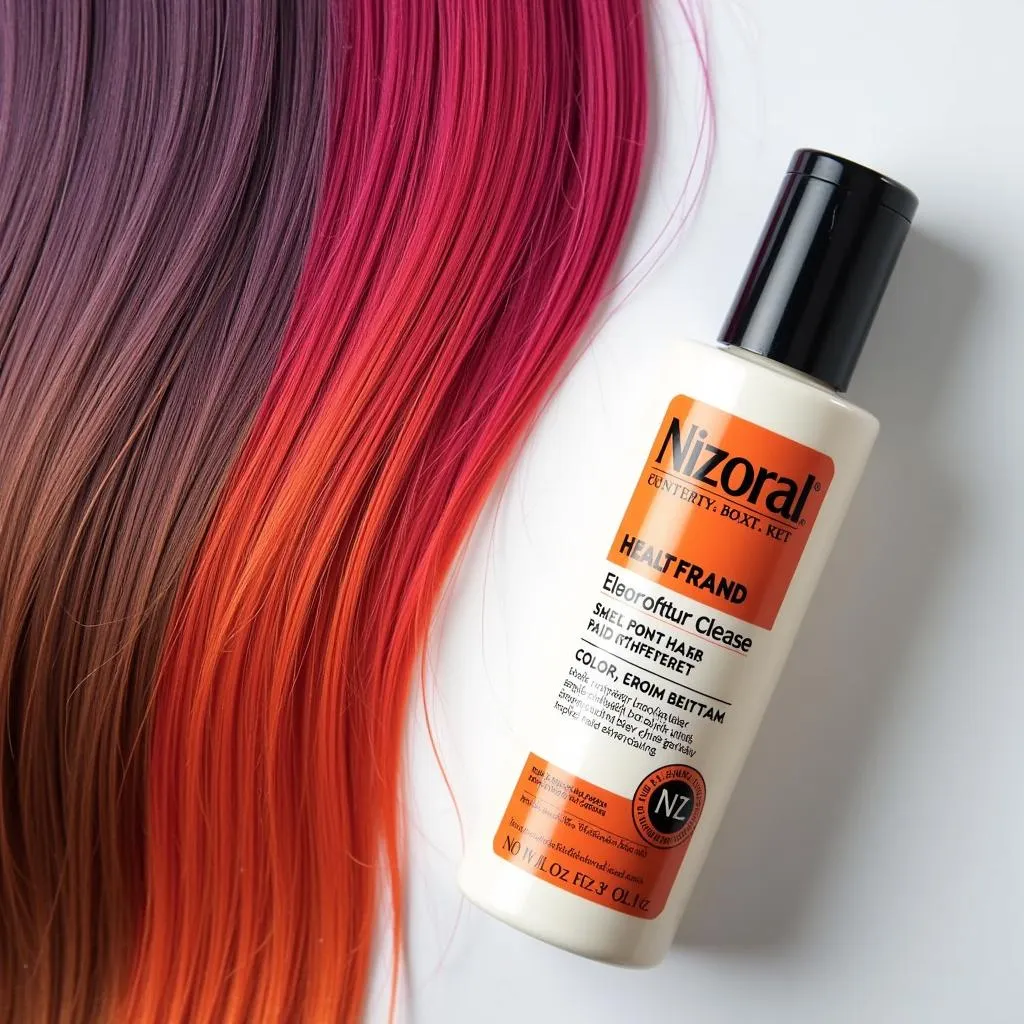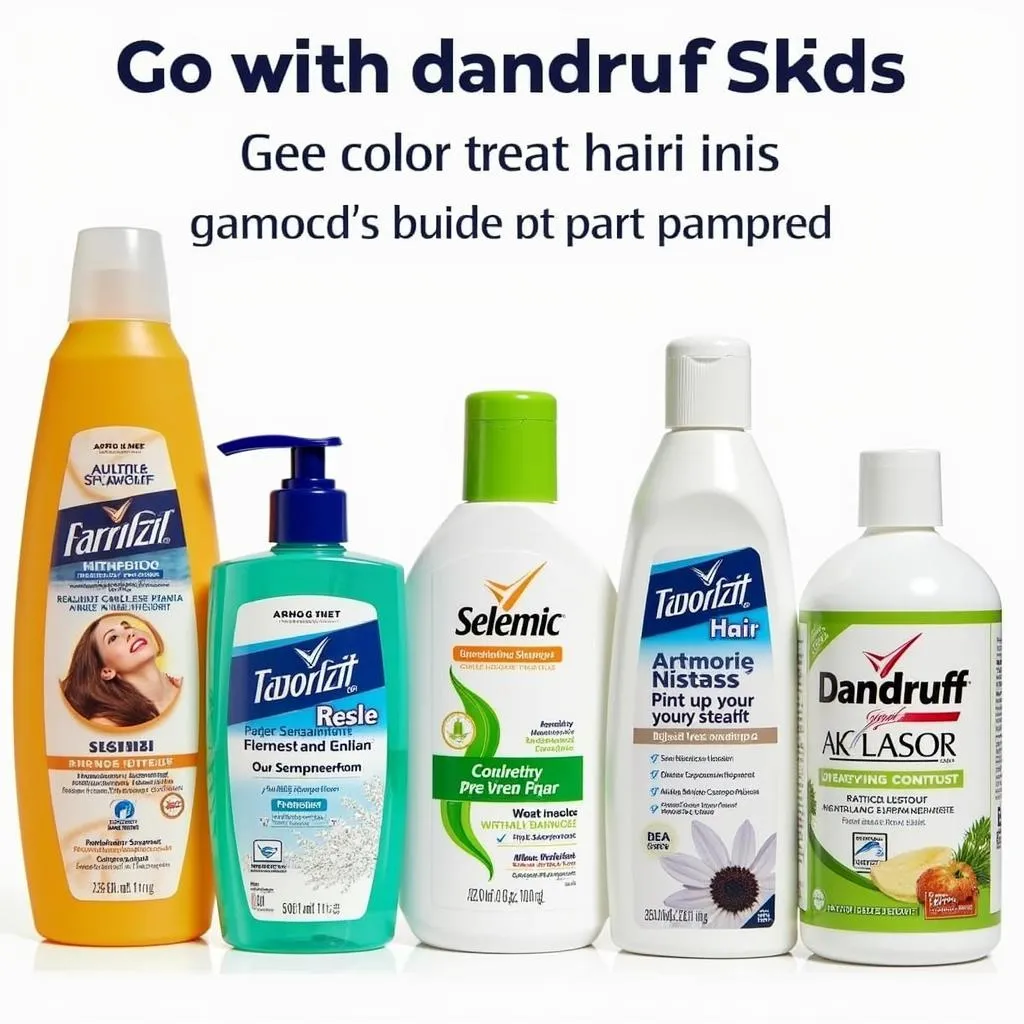Nizoral, a popular anti-dandruff shampoo containing ketoconazole, is often praised for its effectiveness in combating scalp issues. However, if you have color-treated hair, you might wonder, “Is Nizoral safe for my hair?”. This is a valid concern, as some hair care products can strip color or cause unwanted changes to your carefully chosen shade. Let’s delve into the safety of Nizoral for color-treated hair and explore the best ways to protect your vibrant locks.
Understanding Nizoral and Its Effects on Hair
Nizoral primarily targets the fungus Malassezia globosa, a common culprit behind dandruff. Ketoconazole, the active ingredient, works by inhibiting the growth of this fungus, thereby reducing scalp inflammation and flaking. While highly effective, ketoconazole can be drying to the hair and scalp, especially with frequent use. This drying effect can potentially impact color-treated hair, leading to concerns about color fading or changes in tone.
Factors Influencing Color Safety
Several factors determine how Nizoral might affect your color-treated hair:
- Hair type: Coarse, dry hair tends to be more porous and susceptible to color fading compared to finer hair types.
- Color treatment: The type of color treatment you’ve had, such as permanent, semi-permanent, or highlights, can influence how your hair reacts to Nizoral.
- Frequency of use: Using Nizoral frequently, especially in its strongest concentration, can exacerbate dryness and potentially impact color vibrancy.
- Overall hair health: If your hair is already dry or damaged, using Nizoral might worsen the dryness and lead to color fading.
 Nizoral Shampoo and Color-Treated Hair
Nizoral Shampoo and Color-Treated Hair
Tips for Using Nizoral on Color-Treated Hair
While Nizoral might not be ideal for daily use on color-treated hair, you can still benefit from its dandruff-fighting properties with these tips:
- Consult your stylist: Before incorporating Nizoral into your routine, talk to your stylist. They can advise you on the product’s suitability for your specific hair type and color treatment.
- Opt for a color-safe formula: Nizoral offers different formulations, including some specifically designed to be gentle on color-treated hair. Look for these options to minimize the risk of color fading.
- Limit frequency: Instead of using Nizoral every time you wash your hair, alternate it with a color-safe, moisturizing shampoo. Once or twice a week with Nizoral is usually sufficient to control dandruff.
- Deep condition regularly: Replenishing moisture is key to preserving color vibrancy. Use a deep conditioner after each Nizoral wash to combat dryness and keep your hair hydrated.
- Cold water rinse: After washing and conditioning, rinse your hair with cold water. This helps seal the cuticles and prevent color molecules from escaping.
- Color-protecting products: Invest in color-protecting shampoos, conditioners, and styling products to maintain your hair color and prevent fading.
Alternatives to Nizoral for Color-Treated Hair
If you find Nizoral too drying for your color-treated hair, consider these alternatives:
- Pyrithione zinc shampoos: These shampoos are effective against dandruff and generally gentler on color-treated hair.
- Selenium sulfide shampoos: Another option for dandruff control, selenium sulfide shampoos are typically milder than ketoconazole-based products.
- Tea tree oil shampoos: Known for their antifungal properties, tea tree oil shampoos can help manage dandruff and soothe the scalp.
 Various Anti-Dandruff Shampoos for Color-Treated Hair
Various Anti-Dandruff Shampoos for Color-Treated Hair
When to Consult a Dermatologist
If you experience persistent dandruff or scalp irritation despite using over-the-counter shampoos, consult a dermatologist. They can determine the underlying cause of your scalp condition and recommend the most appropriate treatment plan for your specific needs.
Conclusion
While Nizoral can be an effective dandruff treatment, its potential to dry hair raises concerns for those with color-treated locks. By following the tips outlined above and considering alternative options, you can manage both dandruff and maintain vibrant, healthy-looking hair. Always prioritize open communication with your stylist and dermatologist for personalized advice and guidance on navigating hair care for color-treated hair.

